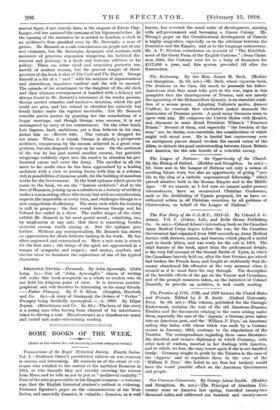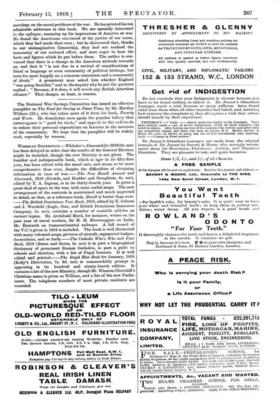Our Common Conscience. By George Adam Smith. (Hodder and Stoughton.
Be. not.)—The Principal of Aberdeen Uni•
✓ arsity went to America last spring, travelled twenty.two thousand miles, and addressed one hundred and twenty-seven meetings on the moral problems of the war. He has printed his ten admirable addresses in this book. We are specially interested in the epilogue, summing up his impressions of America at war. He found the Americana convinced of the justice of our cause, which they had made their own ; but he discovered that, thanks to our unimaginative Censorship, they had not realized the immensity of our national effort, and were eager to hear the facts and figures which be put before them. The author is con- vinced that there is a change in the American attitude towards us, and that it " is not due to a revival of considerations of blood or language or even community of political heritage, but rests far more happily on a common conscience and a community of ideals." A prominent man asked him whether England " was going Socialist," and to the inquiry why he put the question replied " Because, if it does, it will wreck any British-American alliance." That danger, at least, is remote



































 Previous page
Previous page